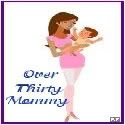Six Ways Wooden Puzzles Help Your Child’s Brain Develop
by Alex Hamilton
Wooden puzzles are a preschool staple and for good reason. Solving puzzles helps children develop important cognitive and fine motor skills in a fun way. Providing your child with a variety of age-appropriate puzzles is a great way to help them become ready for school. Here are just a few of the skills your child will pick up as they play with puzzles.
Trial and Error
Children learn best by doing and making plenty of mistakes. As they work to solve the puzzle, they learn how to use trial and error to eliminate possibilities and narrow it down to the solution that works. A mildly challenging puzzle gives them the opportunity to learn how to work through their frustration and reap the rewards of sticking with a problem until they find the answer.
Being comfortable with using trial and error is an important part of the learning process and will help them become intellectually curious and more persistent.
Spatial Temporal Reasoning
Finding the spot where a puzzle piece fits then manipulating the piece so that the matching parts line up helps children develop spatial temporal reasoning. This will help them later in life as they study mathematics, science and art and learn skills such as how to drive a car or play sports. Many careers such as engineering and architecture rely heavily on having good spatial abilities so giving your child lots of practice early on can widen their options for employment later in life.
Fine Motor Skills and Hand-Eye Coordination
As adults, it’s easy to forget just how complicated it really is to place a puzzle piece in the correct spot on the tray. Deciding where a piece goes and then manipulating it to fit just so takes a lot of effort for a toddler or preschooler! Puzzles are an excellent way for them to get practice in making these kind of deliberate, fine movements.
Other Cognitive Skills
Puzzles help children see how parts are related to the whole and to use their reasoning skills to figure out what is missing. Many puzzles also feature numbers, letters, shapes, colors and maps which helps cement their knowledge of these subjects. Other puzzles help teach children the concepts of placing various items in categories.
Puzzles are a fun way for teachers and parents to supplement and reinforce skills that the child is currently learning.
Cooperation
Puzzles are not just for alone time! Children can work on puzzles with siblings, classmates and parents. Doing so helps them learn how to take turns and work together to solve a problem. Parents and teachers can model appropriate ways to handle frustration and disagreements if problems arise.
Responsibility
Puzzles aren’t as much fun when there are pieces missing! Make a home for your puzzles and give your child the responsibility of putting them away when they are done. Teach them to take out only one at a time and to play with them only in certain areas so that pieces aren’t scattered throughout the house.
If a piece does go missing, use it as a teaching opportunity. Talk with your child and come up with ways to prevent this from happening in the future. Keep the focus on finding solutions rather than blaming or punishing. This will help them learn to anticipate the consequences of their actions or inactions and help them motivate themselves to avoid it in the future.
Alex Hamilton is a blogger for Todays Concept, a site that features the Melissa and Doug line of classic toys. Batteries not included, nor are they needed.


















0 comments:
Post a Comment